


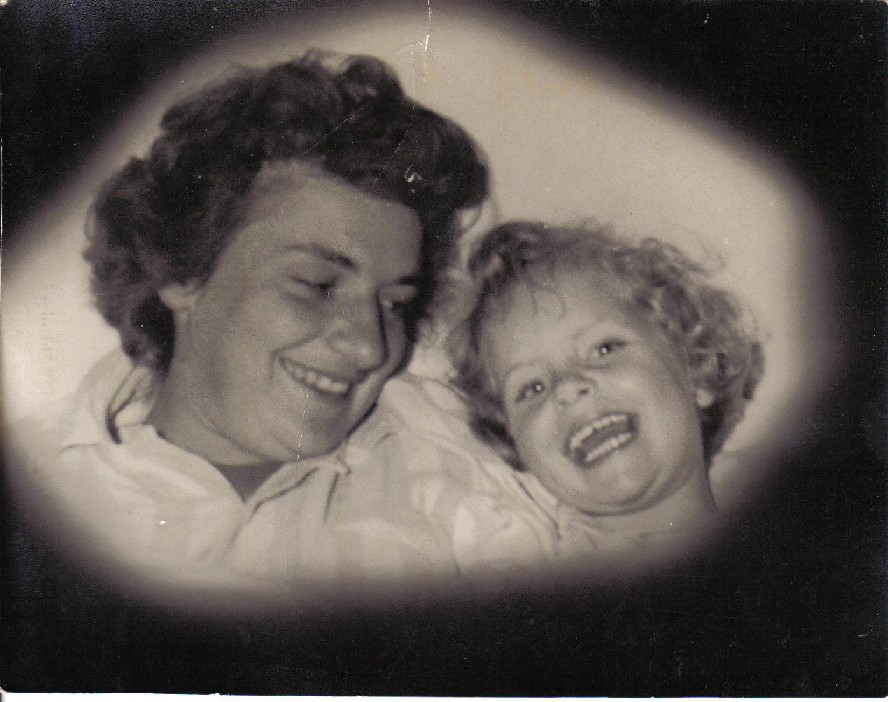
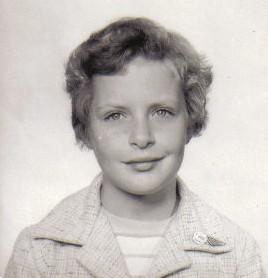
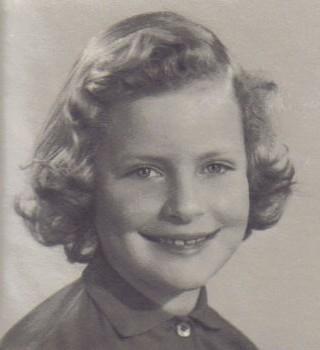











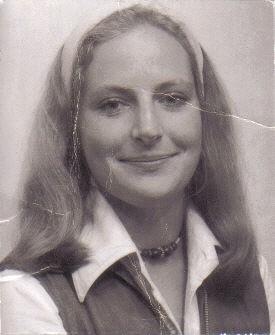

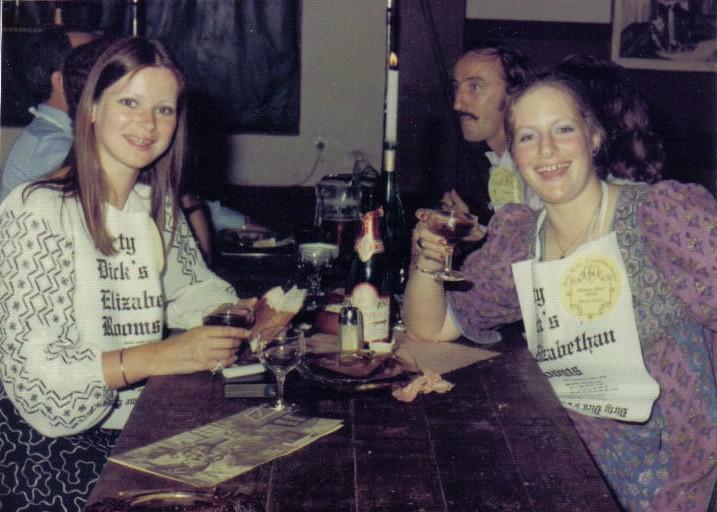
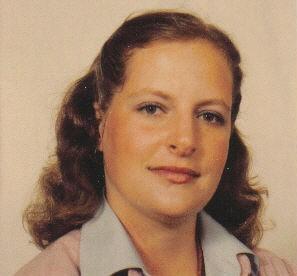

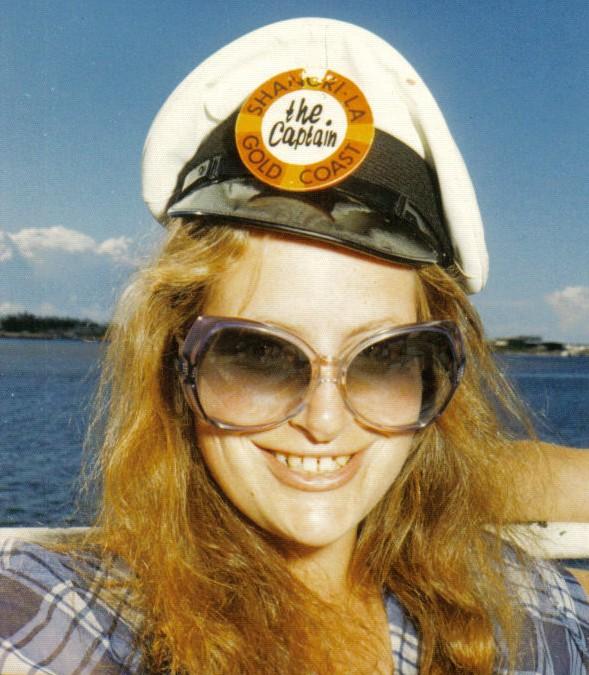






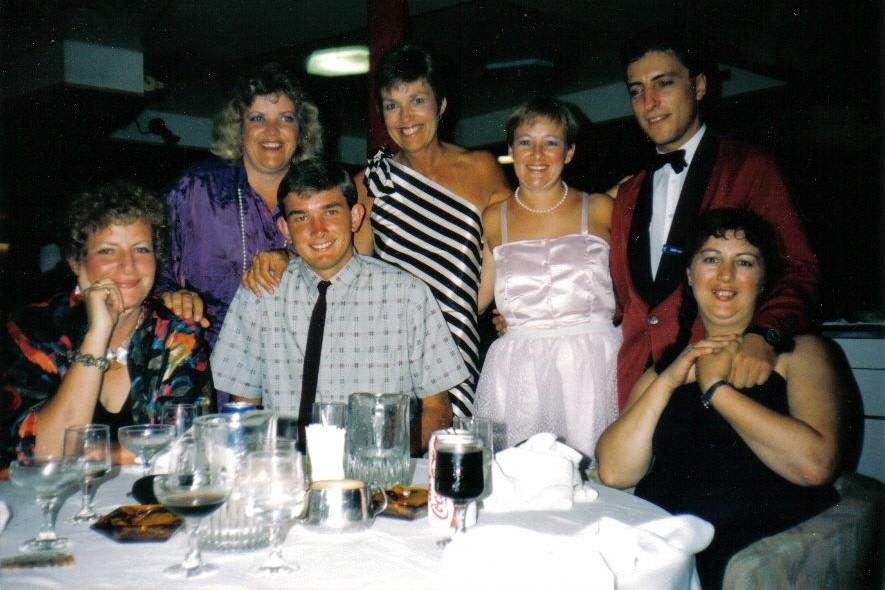

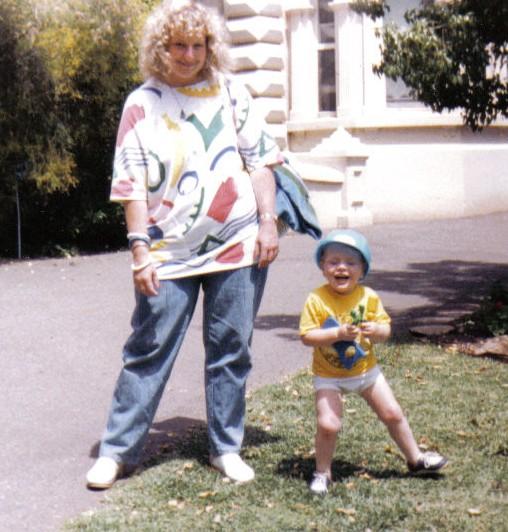
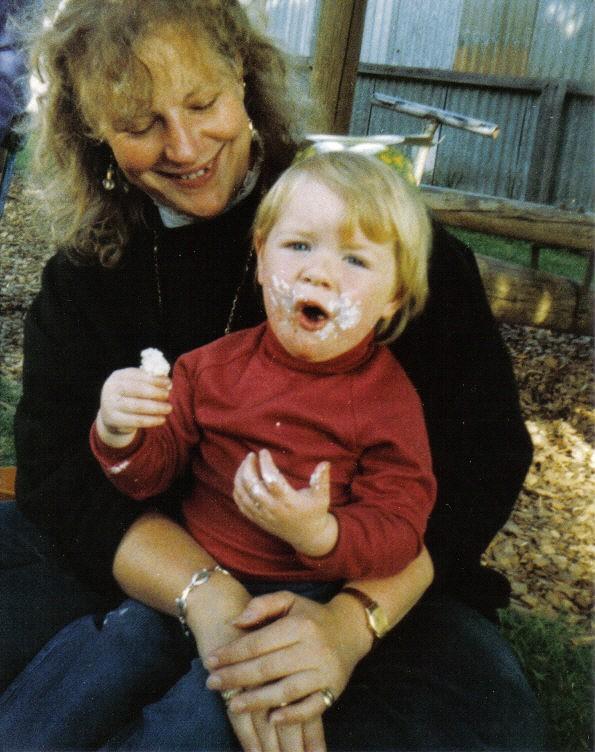


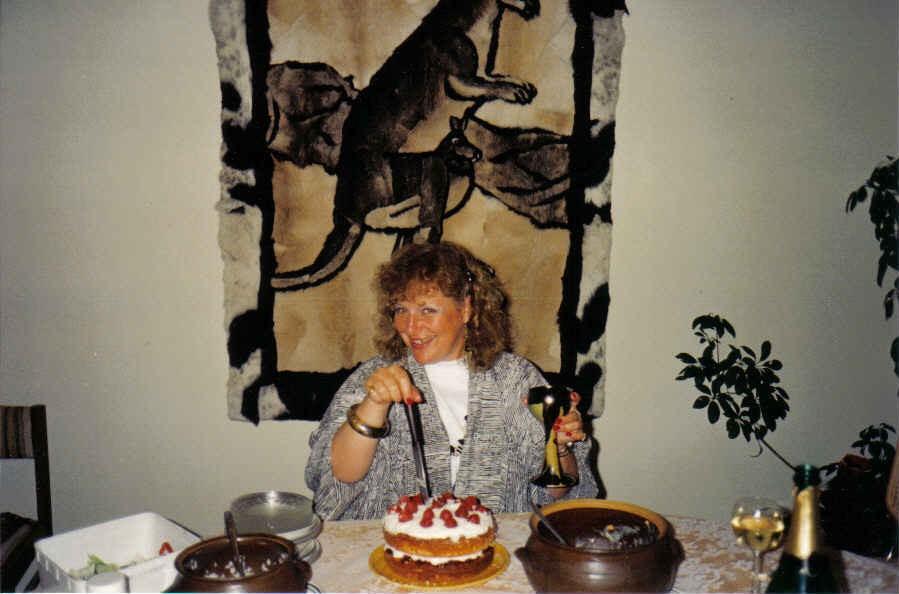
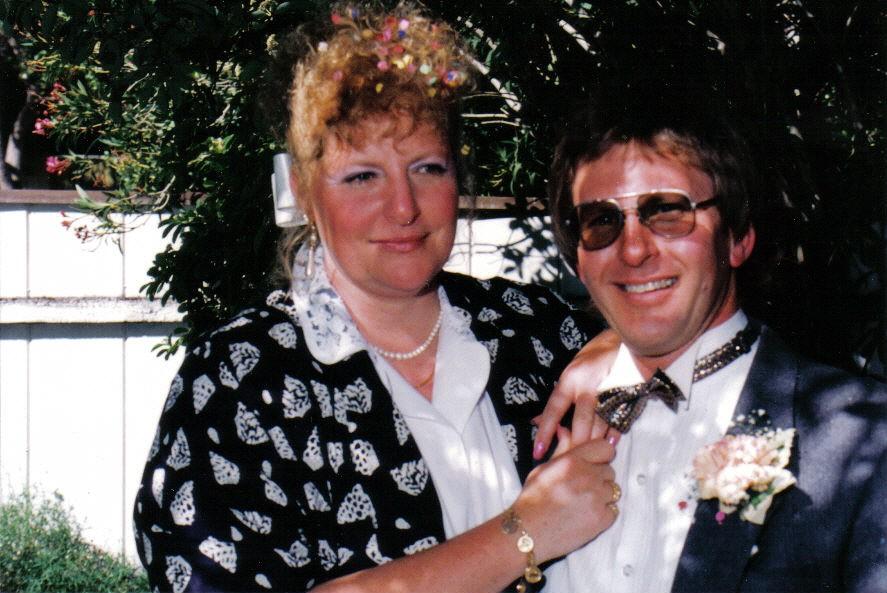
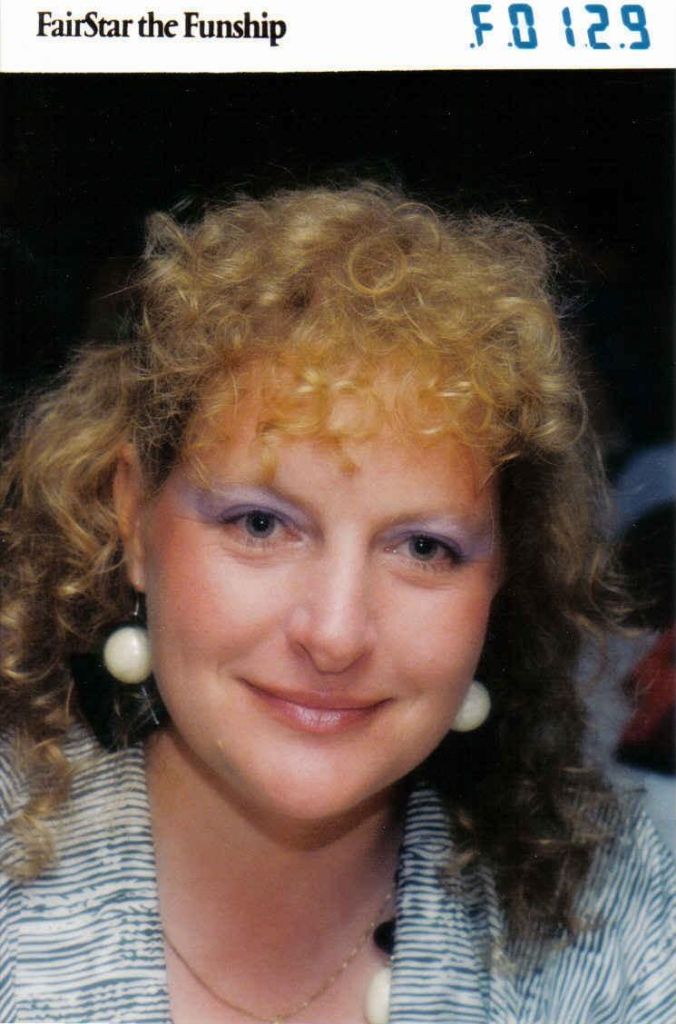
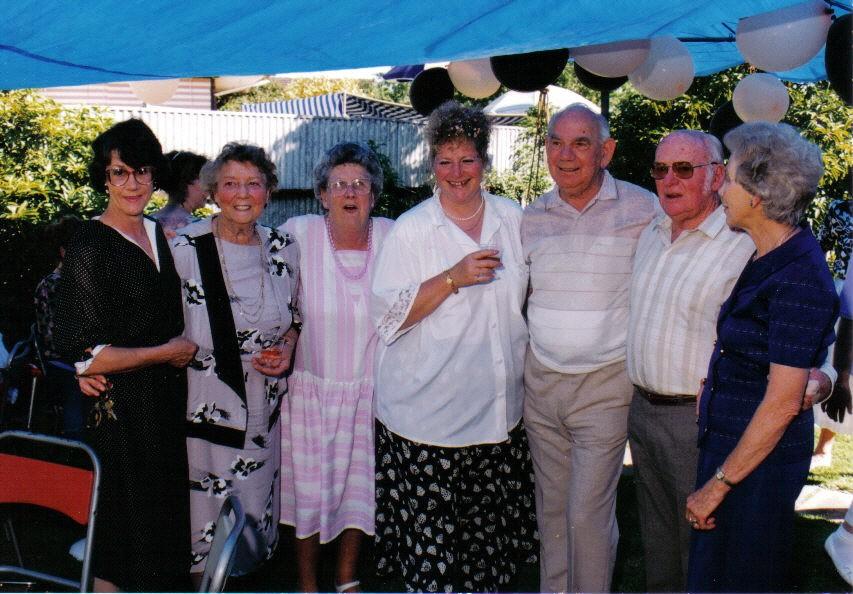







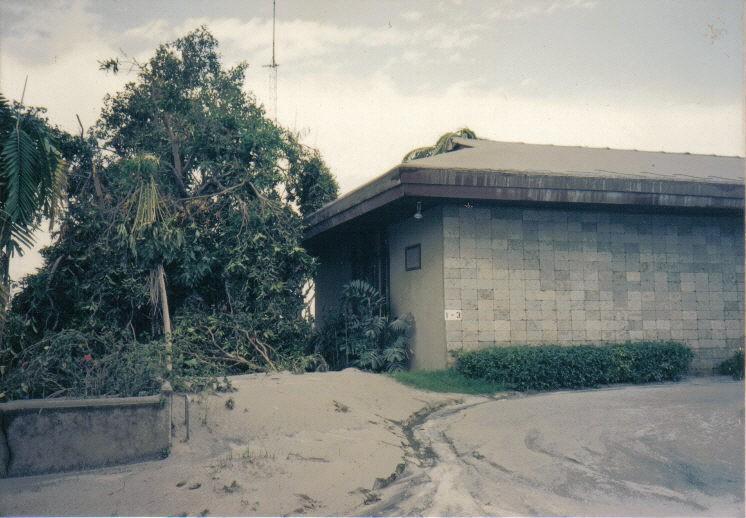

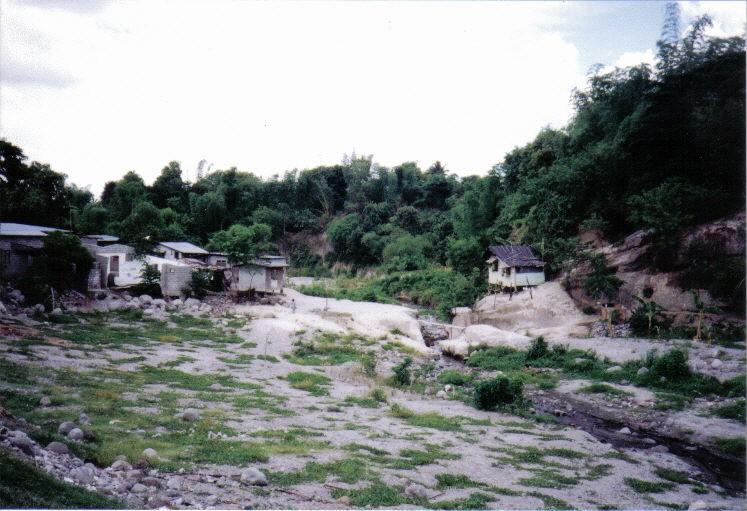







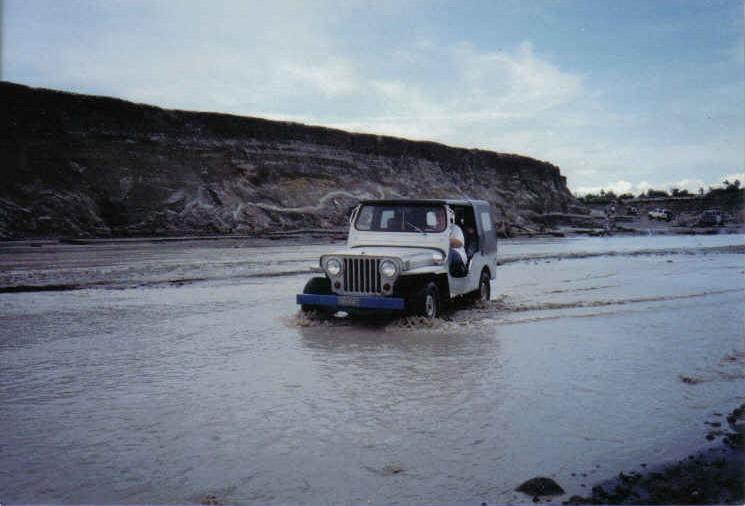




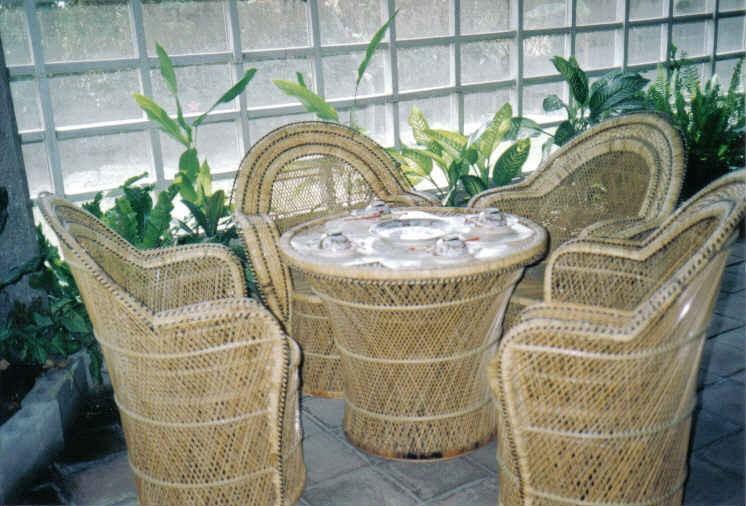






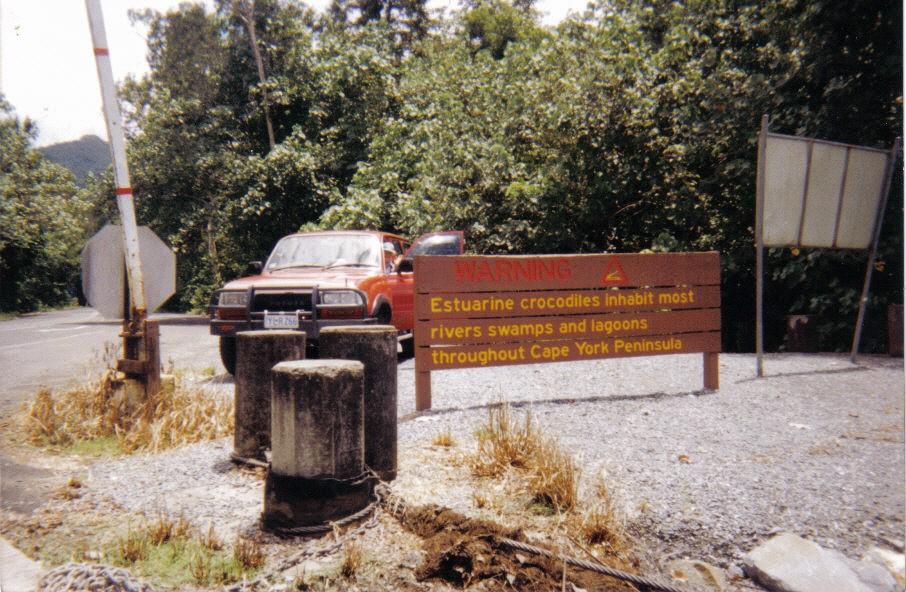
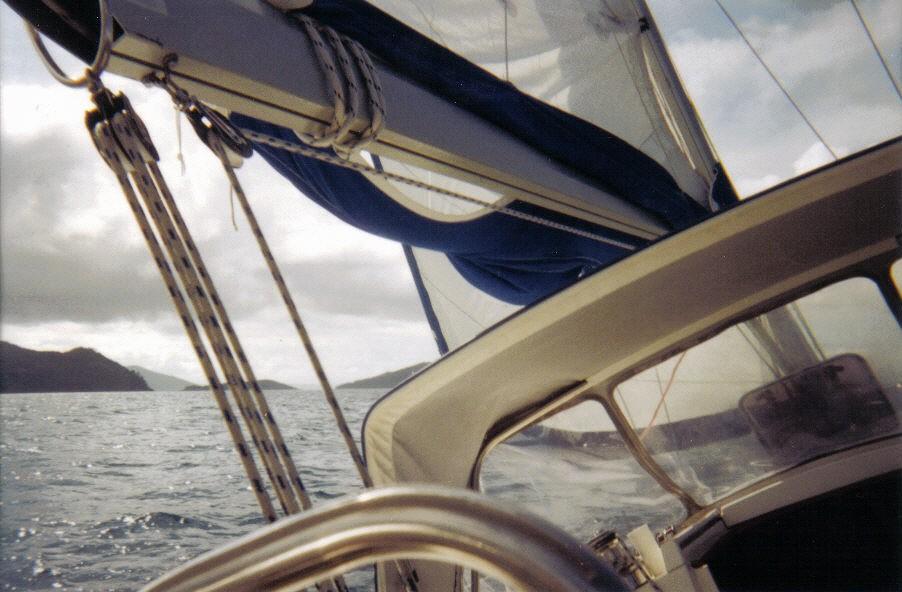



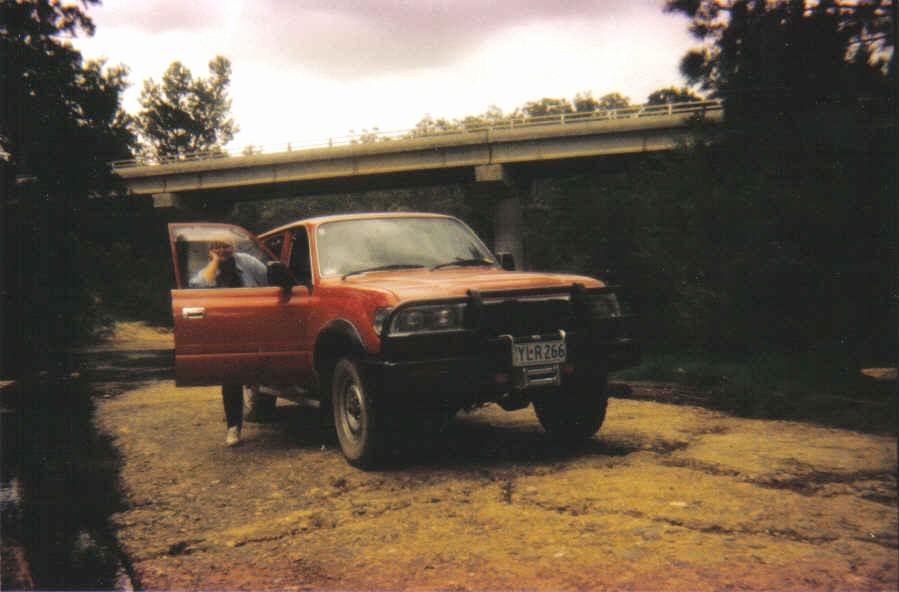








2001
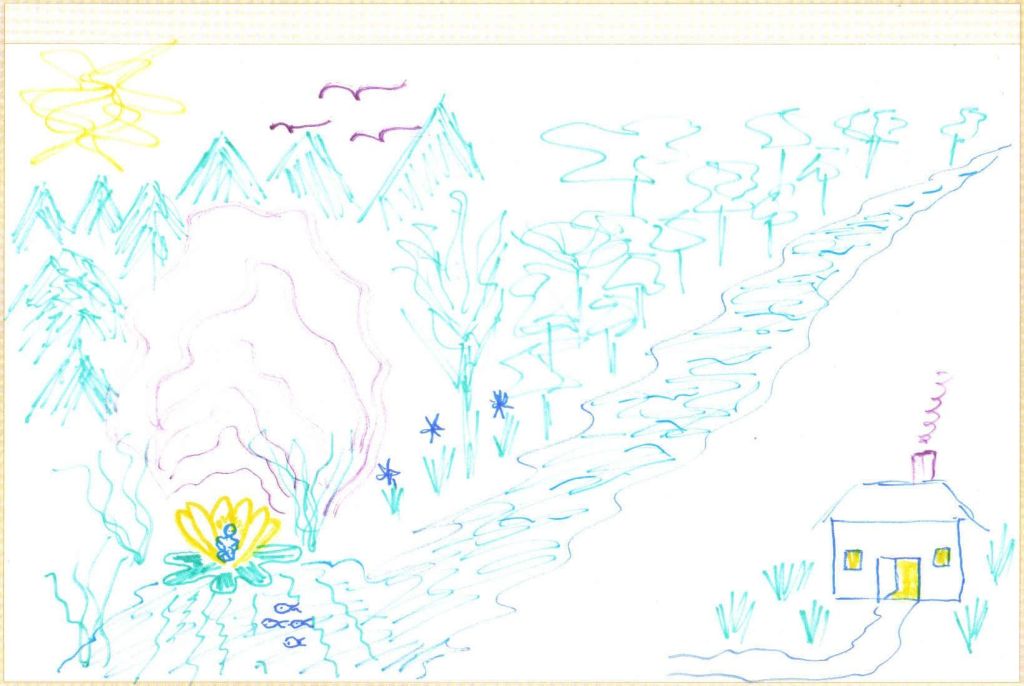
2002

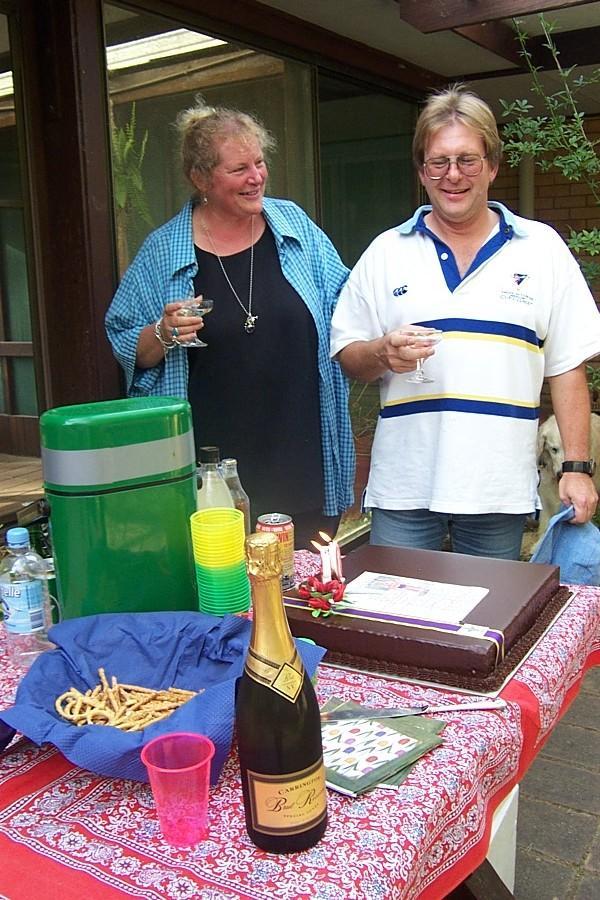


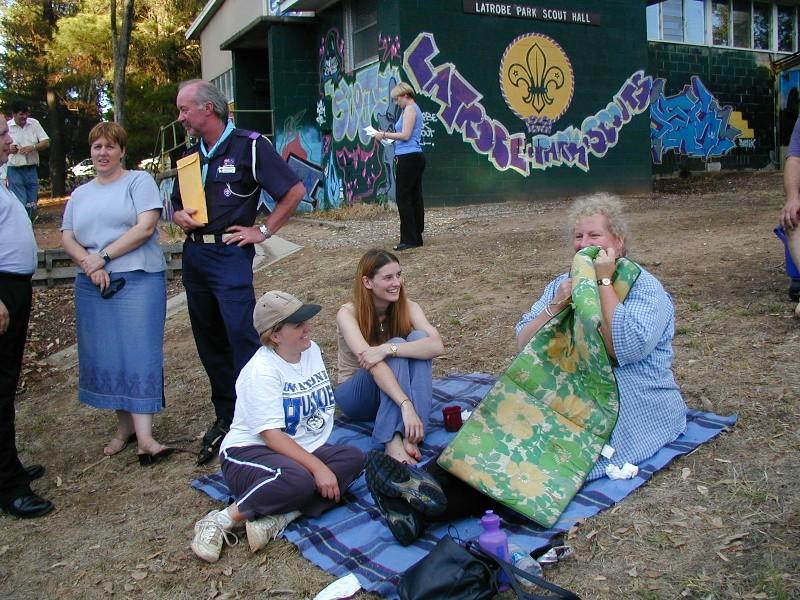





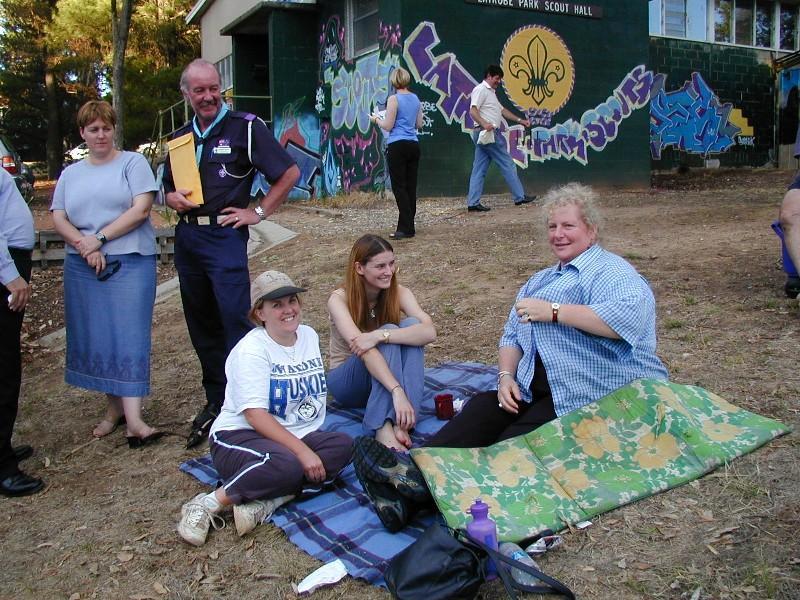

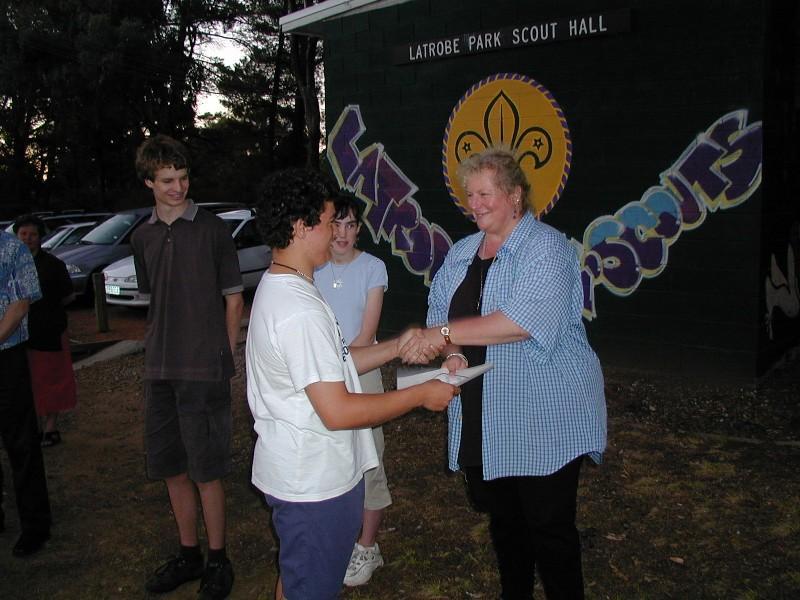



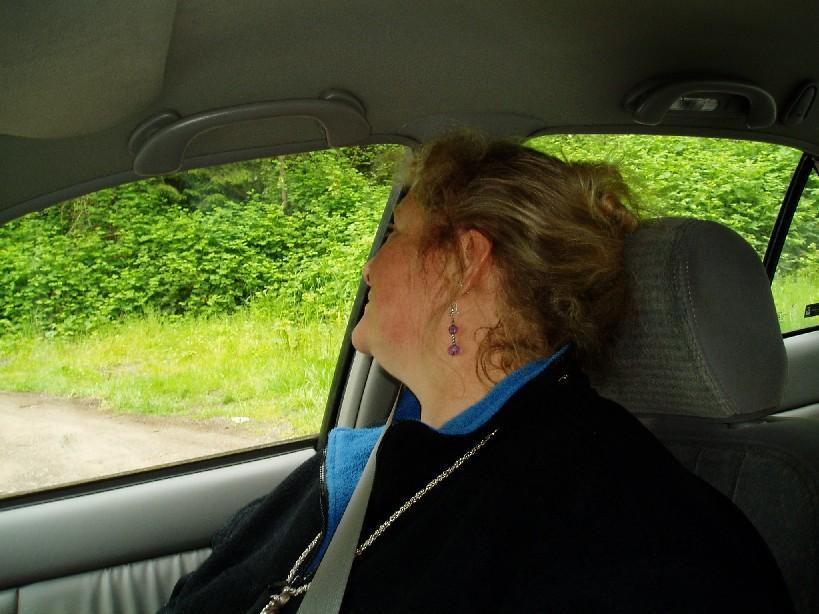






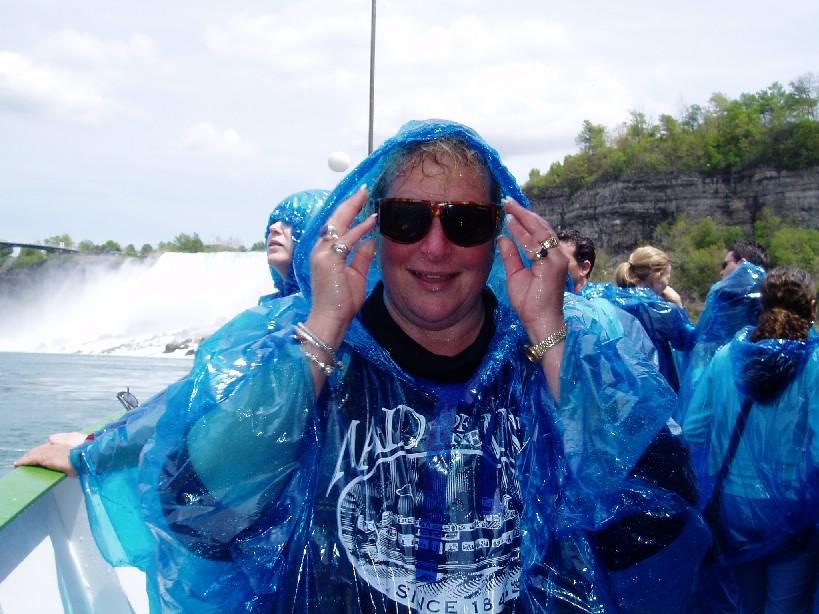

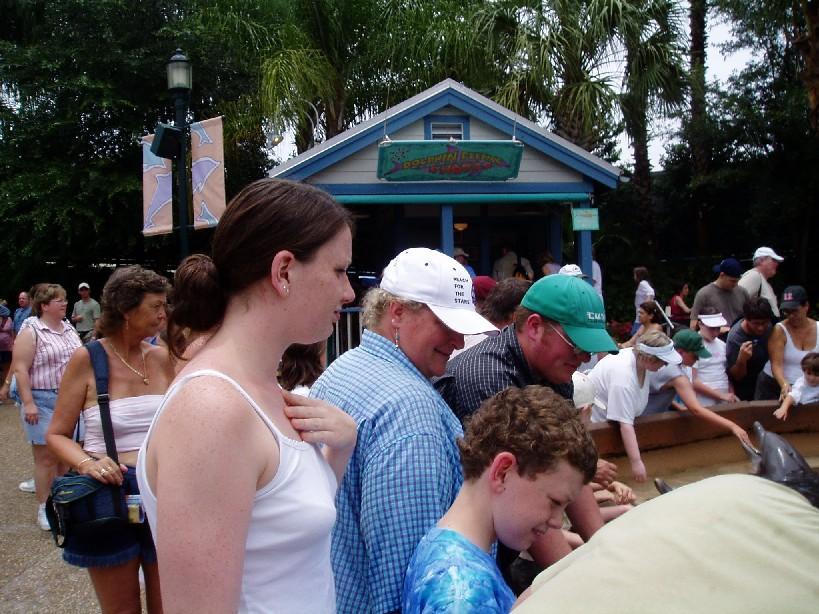

Doris was attempting to lose some of her excess weight, and was exercising too hard. She suffered a major brain bleed and never regained consciousness.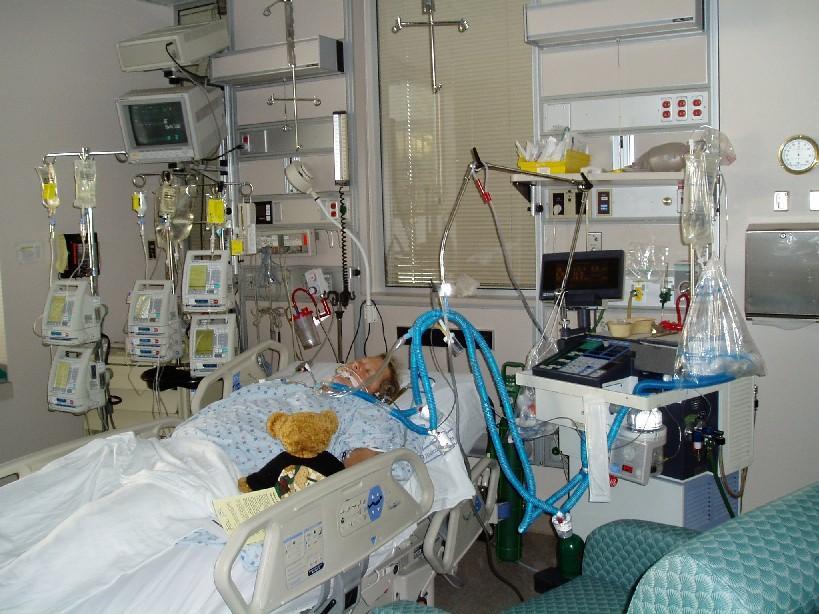 Because she was already in intensive care, she was a candidate for organ donation. She donated both kidneys and heart. When her heart was tested, it contained micro organisms which made it unsuitable for transplant. Her left kidney was transplanted into a man who had previously received a transplant, which had failed, and had been on dialysis for some time. Her right kidney was transplanted into a man who was a long haul truck driver on the West coast.
Because she was already in intensive care, she was a candidate for organ donation. She donated both kidneys and heart. When her heart was tested, it contained micro organisms which made it unsuitable for transplant. Her left kidney was transplanted into a man who had previously received a transplant, which had failed, and had been on dialysis for some time. Her right kidney was transplanted into a man who was a long haul truck driver on the West coast.
In Seattle.


In Canberra. 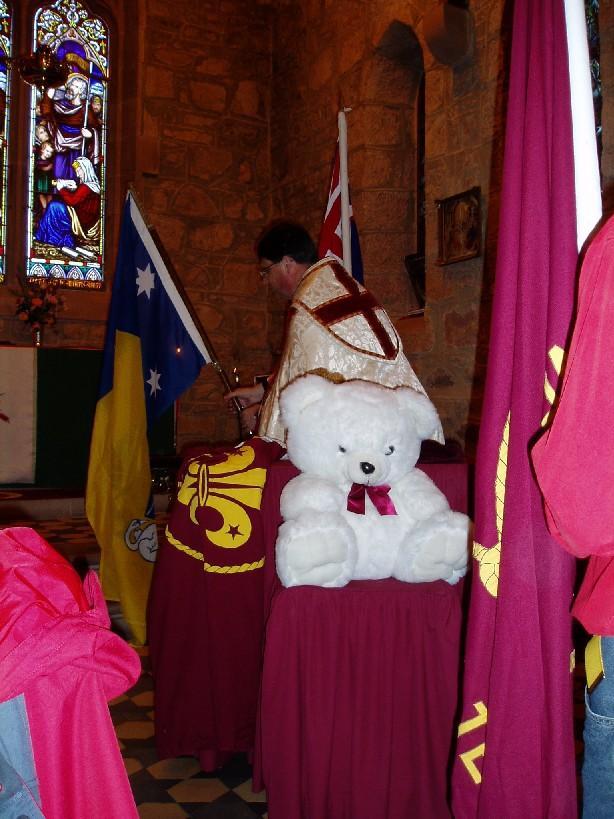





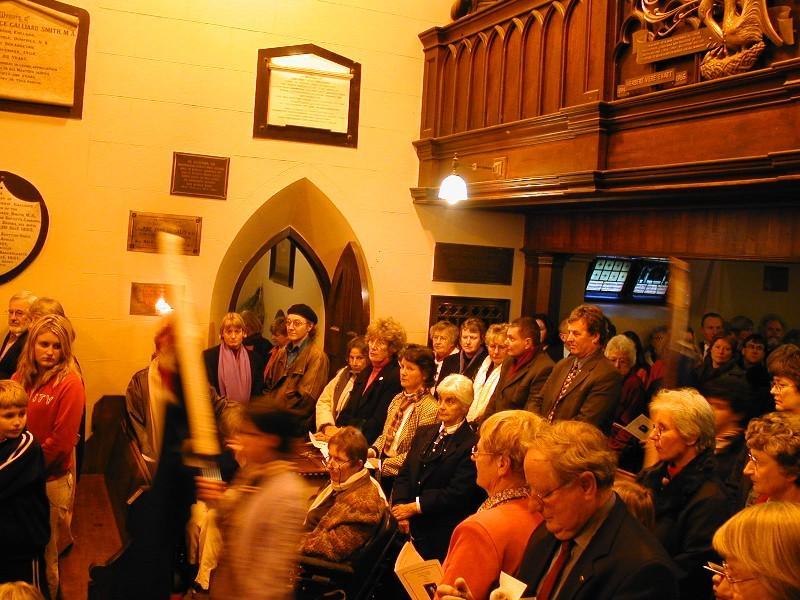



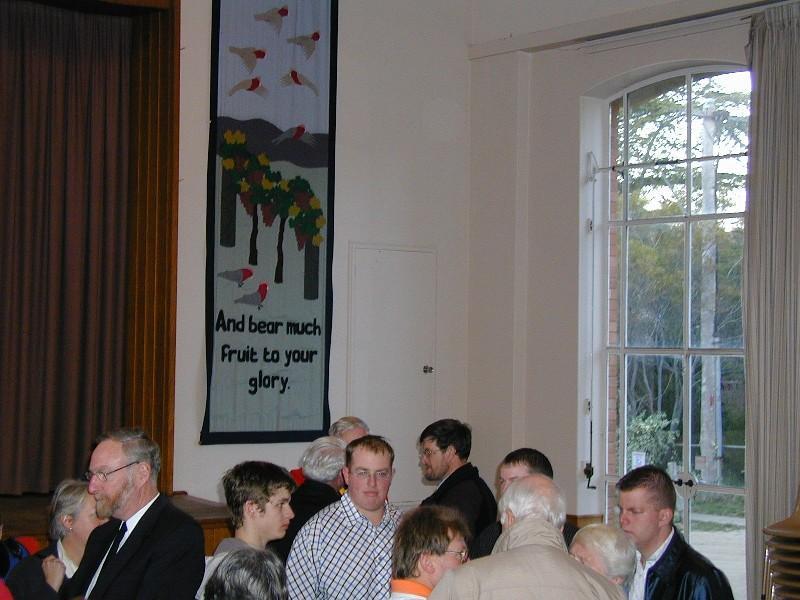


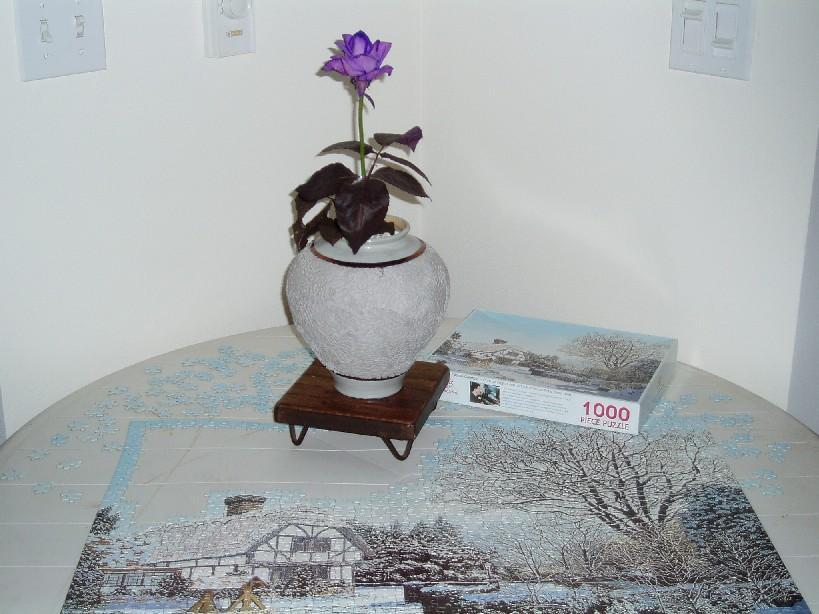
Doris’s ashes were released underwater at a diving site off Hervey Bay in Queensland, called The Three Ships, off the bow of the Lass O’Gowrie. My very grateful thanks to Kevin & Cathie at Divers Mecca in Hervey Bay for their sympathetic & very professional service.




My eulogy to Doris in St John’s Church, Reid (Canberra), Monday 28 July 2003:
| This is scary. I recall Doris taking these same steps up here, at about this time of the year 4 years ago. Part of her job as Director of St John’s Care was to report back to the Sunday congregations on the progress they had made since she had taken over in January. She had already taken her 3 deep breaths as she walked up from the back& I could hear the nervous quavering in her voice as I sat down the back& gave her the signal that she needed to increase her volume. It took about 20 to 30 seconds for the professionalism to start to shine through & she settled in to what she wanted to say. She carried a cheat sheet with about 5 salient points on it & from that, she could talk continuously for about 15 minutes. Unfortunately, I have so much to say about her, that my cheat sheet runs to 6 A4 pages. And for those of you who are sitting outside, you don’t get to see the hand actions, so I’ll just have to paint the word pictures really well.
The first one of those word pictures is of her first boyfriend arriving on his bike with a broken leg, in a full plaster right up to the hip, sticking out sideways from the bike. Stewart wants me to apologise for the next part of this celebration, which is a song that links her entrance today with that early period in her life. It also talks about not letting opportunities pass you by, which has certainly been a hallmark of my relationship with Doris. The songs& the hymn in the rest of this service also link back to the ceremonies we held in Seattle last week, both the bedside farewell & the funeral last Monday. Please join in for the chorus & listen carefully to the words. … The Newcastle Song by Bob Hudson … Tag line: Don’t you ever let a chance go by! My friends, it gives me great pleasure to introduce my wife & the love of my life, Doris Anita Hella Kurtovic de Wildt, McCutchen, Ehret, Turner, Fiddaman. The story starts in the early 1950’s. At the end of World War 2, the only countries that would accept people without ID documents were in South America. Doris’s parents, Anita Kurtovic from Croatia & Claus Wildt from Germany were there & kicked off the life of this remarkable woman, in Cochabamba, Bolivia. Anyway, Claus was a bit of a bastard & disappeared within a couple of years. Doris turned out to be a bit of traveller. At one point, Anita & Doris lived in Paris for a while, living off the generosity of the local nuns. It’s funny how that one eventually went full cycle. Along the way, Anita married Ed McCutchen, an American geologist, and followed him to the Canary Islands, where Doris’s brother Tom was born. In the US, they lived in Shreveport, Louisiana and Salt Lake City, Utah. When they arrived in Sydney, Australia in 1966, Anita said “enough” to any more travel. Doris always was a bit of an outcast. When she arrived in the US, she spoke German, Spanish & French, but no English. She was mistaken for a Puerto Rican. Years later, on a holiday in New Caledonia, her French came back after a few days & someone asked her which part of Paris she had lived in. When she arrived in Australia, the first person she spoke to at school told her to “go home, ya bloody Yank”. Madame Hagney’s elocution lessons were particularly trying. You can picture it – “Hark the lark, singing in the park”, and from the back, “Harrrk the larrrk, singing in the parrrrk”. Years later, we ran into one of her old school friends. “Oh I remember you, you were that hark the lark chick”. I have a photo at home of a stunning young woman in her nurse’s uniform, with her hair pulled back to show off her high Germanic cheek bones. Doris was the type of nurse that I would certainly have liked to have caring for me. She told stories of her days as a Community Nurse in the Botany Bay area of Sydney, where she would often go against official instructions to accommodate the wishes of the patient. She got carpeted by her manager on numerous occasions & I think this is where the “patient” started becoming the “client”. She told stories of a home brew exploding in the kitchen, with bits of schlivervitz dripping off the ceiling, & of the old man who just wanted to be able to keep his bike in his apartment – he turned out to be a former Olympic Gold Medallist in cycling. Doris married Terry Ehret, but that marriage self destructed in a few months. In Graham Turner, Doris saw a man of strength, who would enable her to escape from Sydney. She married him& they went to live in Adelaide, where Stewart was born in 1985. Unfortunately, the marriage to Graham didn’t work out & Doris left Graham when Stewart was about 3. I first met Doris at the gates of the childcare centre, when she was dropping off Stewart & I was dropping off my girlfriend’s daughters. I thought, “Wow, she’s got great eyes” & she thought, “Hm, he’s got a cute arse”. We circled around each other as my relationship with Mary Jane ended & we finally met again at the Jaycees Annual Ball. Doris was dressed as Merlin, complete with tall conical hat & a wand. We sat in the garden & talked for ages. I said I’d call her & she omitted to give me her phone number. Three days later, I called her & she answered. What she didn’t know was how much heaven & earth I had moved to get her unlisted number & what I didn’t know is that she had stopped the car in the driveway, punched out the window screen & reached in through the window to answer the phone. I invited her to dinner 2 days later at the house I was sharing. It was the only night of the week that we were all home at the same time,& it became known as our “bring a tart” night, so I invited her to be my tart. She turned up, with a lovely fruit tart. But she also made a fifty mile round trip to drop Stewart off at a friend’s house before she arrived. At the end of the evening, we shared a kiss & the heavens exploded. I pulled back & said, “I don’t need this” & that REALLY needed some explaining. What I was trying to express was that I had been through a 10-year marriage & another substantial relationship, & I was finally making it on my own. I could do anything. I was self-sufficient. I was in control of my life. And if she wanted to add some icing to that cake, that was OK with me. Doris, it seems, was at exactly the same point in her life. She was studying, she had a part time job & she had spare time to enjoy with Stewart. After that, we were never apart for more than a few weeks at a time, for 15 years. Some 18 months later, we were married in our own backyard, under the cotoneaster tree, with all of our friends around us. We already had 2 of everything (toasters, washing machines, dryers, kitchen tables), so we asked each of our friends to supply a specific item or service for the wedding. Tony organised the chairs, Larry supplied the barbecue, others brought a roast or a salad or a dessert & Clive arranged the grog. And our neighbour dumped a bucket of freshly cut roses & orchids on the back doorstep. We had a ball& the guests catered for themselves. Still in Adelaide, Doris had worked for an organisation known as TOYS, which stands for “Together Offering Your Skills”. It was a motley bunch of mostly old men who would repair toys & jigsaw puzzles for child care centres, kindergartens & toy libraries. She learnt a lot from these men, not only about how to work a multitude of power tools, but also about how many rich life experiences they had to share. Some of Doris’s most treasured memories was watching these guys, average age 75, play with a new type of toy that perhaps they hadn’t seen before, & one in particular when an ark came in missing a few animals, & seeing them play with the animals, marching them in two by two. Doris started a similar project here at St John’s Care, it’s called “Patch a Puzzle” & many of those volunteers are here today. Then it came time for our mid life crisis. We really needed to create some distance from our ex-wife & ex-husband. So we bought a small trading company in the Philippines & moved there to run it. Three weeks later, Mount Pinatubo blew up about 15 miles away. In volcanic terms, that’s just over the back fence. We were lucky in that we were stuck in a hotel with no means of escape – we had food, shelter, power, lights, & a big screen TV with laser videodisks. There I was with sand raining down outside & a concrete pillar hitting me in the back from 9 inches away & the boys’ eyes never left that screen, even when they were moving in the opposite direction to the TV cabinet. All of Doris’s Emergency Room training & all of my Emergency Services training was put to the test that night & on into the next day. We survived the eruption & the aftermath, & Doris even featured on a 60 Minutes program in Australia. In fact, just thinking back, I’m told we should all have 10 minutes of fame in our lifetime. With all of Doris’s appearances on radio & TV, she’s had her own 10 minutes, my 10 minutes, Stewart’s 10 minutes & I think she’s stolen 10 minutes from a few other people as well. Back to the Philippines, the best way to make a small fortune in the Philippines is to start with a bigger one. We did exactly that, but also did lots of scuba diving. I need here to paint you a scenario. When you’re diving, you’re basically swimming along forwards, head up to see where you’re going, wearing a lycra suit to keep the bities off your skin,& propelled along by your fins. For those of who had met Doris, you know she had big boobs. And of course they tend to hang down in the water & create an opening at the neck line, which means that any fire coral that happens to be floating in the water, where does it go? Yep, straight down the middle. So when we got back to the room, I had the REALLY tough job of rubbing alcohol over the whole area, to ease the itching & draw out the stings. On our return from the Philippines, Doris studied & practiced in her next job, which was also working with older people, the concept of “social role valorisation”, which involves accepting all of us as individuals & honouring the talents & gifts that all of us have to share. Sometimes it’s something as simple as not putting a retirement home next to a cemetery (think about it), or not putting an old person at the end of a dead end street. They already know they’re on a one-way trip, & we don’t have to rub their noses in it. Doris worked with volunteers for most of her career. When we moved to Canberra, she coordinated the home-based volunteer program for the ACT Hospice. She came home with some remarkable stories. One day she went to do an initial visit to a man whose wife was dying. His parents had died when he was 10 & her parents had taken him into her family, so they had really been together for about 80 years, & married for 70 of those. He was a little confused as why she was there. As she explained that she had volunteers who could come in & help him do things for his wife & perhaps allow him to take a break from caring for her for an hour or two. He said, “My dear, I have been doing the little things for my wife for 70 years, why would I NOT want to do them now, when she needs me the most?” It was a lesson that Doris never forgot. For us, one of those little things was a coffee in the morning. I’d make the coffee (black with ice-cream in it) & she’d turn on the TV. I could never get to work before 8:30, because from 7 to 7:30, we absolutely had to snuggle up in bed& watch the Today Show. But on the other hand, when I left the house, I knew that I was loved & special. It was in Canberra generally& at St John’s Care specifically, that Doris really started to shine. As I’m sure most of you already know, St John’s Care is the community outreach arm of this parish. I’m sure lots of people today will share some stories of Doris from our time here in Canberra. One of the keys to SJC’s original success, before Doris even started as the Director, was that it was small enough to exist without much paperwork. Doris not only continued the process of limiting the paperwork, but also insisted that intrusive questions be kept to a minimum. Many of the clients were surprised to find that their defensive barriers had been broken down within minutes of talking to one of the staff. She also insisted that EVERY person who walked through that door had a right to do so & was to be treated with dignity & respect. She even made up little cardboard “J” letters & distributed one to every volunteer. “J” stands for Judgement, and the idea was to “put your judgement back in your pocket”. It came home very clearly one day when a rather dirty young woman came in, wearing tracksuit & joggers, hair all over the place, what you might think of as a “typical” client of a welfare agency. She proceeded to pull out $150 in cash to pay for her upcoming Marriage Education Course, & drove away in her BMW. She’d been gardening. And you will find you very own “J” to cut out, on the back page of your order of service. Doris had an impact wherever she went. She was a Venturer Scout Leader at the Latrobe Park Group in Deakin. I think I’ve spotted every single one of the young people she worked with here today, with the exception of those who have passed on their apologies. I recall running into Jon Stanhope in Civic on the night before he was elected, while we were waiting for the Venturers to finish their activity. We wished him well for tomorrow & mentioned our plans for moving to Seattle. Also in Civic one day, Doris was approached by a very dirty, smelly man who engaged her in conversation for several minutes, while I looked on. After he left, I said, “Client of yours?” She replied, “Uh huh, he used to be a senior Public Servant before his wife left him & he fell apart.” When Doris was around, everyone got their ten cents’ worth. Many of you will be asking why someone so young should be taken from us, at the age of just 49. My mum, who died at the age of 67, always used to say, “Only the good die young”. My dad, on other hand, is well into his third marriage at the age of 87, so perhaps we shouldn’t draw any conclusions from that. I’d like to throw in some theories of my own, in the hope that they may comfort you. I’m going to draw an analogy from the Baha’i writings, which talks about a baby in the womb. It has no idea where its next life is. The reality is that its next life is literally all around it. From time to time, it can actually hear it & be touched by it. This baby also grows various appendages, like arms & legs, for which it has absolutely no use in its current life, there in the womb. But it’s going to be seriously disadvantaged when it’s born into that new life, if it hasn’t grown them properly. So let’s step forward to this life. The next life is all around us, so close you could touch it & sometimes it can touch you. And sometimes you can hear it as well. I believe the purpose of this life is to grow spiritual arms & legs, to learn the lessons we need to learn, to acquire the values & attitudes that we need to acquire & to do whatever spiritual jobs that we came here to do, so that we’re not spiritually stunted when we move on. I have a feeling that Doris will be as big in that life as she was here. I recall Doris mentioning exit points, & I think it comes from Carolyn Myss & her work on Sacred Contracts. It seems we are given 6 exit points in this lifetime. The spirit chooses which one it will take. Sometimes it gets onto the turnoff & decides it’s the wrong one, because its work is not finished yet. Spend a moment to think back on your life, think back to where perhaps you had a close shave. That’s an exit point. I’ve nearly drowned twice, so they’re pretty easy to identify. We’ve been driving on the freeways in America over the last 4 months & picking the correct exit has often been quite “interesting”. So when it comes to this particular exit point, Doris my love, I just think your timing is simply atrocious. But then I look back & think that perhaps Doris had indeed grown her spiritual arms & legs, that she had learned her lessons & had done whatever it was that she came here to do. And she certainly touched all of us along the way. Even in her death, Doris touched people. I received huge amounts of support from both my Australian & my American colleagues in Seattle. One of the people whose association with Doris was through the apartment block in which we live over there, prefaced her comments at the bedside farewell with, “I never speak at things like this, but Doris has touched me so much that today I’ll speak out”. We heard from the volunteer organisations that Doris had already worked her way into, the local Thrift Shop& the Woodland Park Zoo. In fact, one of the few pieces of memorabilia that I brought with me, which you can see later on in the hall, is a name card from the zoo that describes her as a “Volunteer in Training”. I also need to very publicly thank my work colleagues here in Deakin. They passed the hat around & their contributions enabled me to pay for the funeral service in Seattle. Thank you, all of you. For those of you who don’t the details surrounding Doris’s last few days in this lifetime, here they are. She had been taking the opportunity of really looking after herself – getting her hair done, getting some nice nails put on, always wearing bright nail polish, she was even receiving some stuff in the mail to help keep her skin looking beautiful, and she was exercising regularly. Unfortunately, exercise & a brain aneurism don’t go well together. An aneurism is like a balloon in a blood vessel & when it bursts, it bleeds profusely into the brain. The brain goes into shock, you collapse unconscious & we think that in Doris’s case, it also triggered a mild heart attack, which deprived her of oxygen & added to the trauma to the brain. By the time the ambulance arrived, the damage was already done. All this was Monday morning, 2 weeks ago. She was taken to Intensive Care at a local hospital, which just happens to be one of the best in the entire Pacific North West region. Early on the Tuesday morning, her condition deteriorated & by the time I went back home to wake Stewart up, she had already gone & her body was being kept alive by the respirator. Stewart& I made the decision to honour Doris’s wishes that her organs be donated& we signed her up for all of her major organs. For those who have been through that process, you know that it tends to drag out towards the end & it was 1:30 am before they wheeled her away to the Operating Room. It was the toughest way for both of us, but we were determined to stay with her until the end. One piece of good news is that there are some parts of Doris that live on. Unfortunately, her lungs were too damaged by the trauma surrounding her death. Her liver & pancreas were unsuitable as well, probably damaged by the mature onset diabetes that she had been struggling with. Her heart also suffered some trauma, but it was suitable for the valves to be used. Both of her kidneys went to male recipients aged 41 & 44. One of them had been experiencing a lot of trouble finding a match. It seems Doris was his perfect match. I’ll also share with you a message that my American manager passed on to me from his wife. Her brother died around this time last year from liver disease. Like many others, he spent his last days & months wearing a pager, hoping against hope that the pager would go off, knowing that when it did, someone was dying & he would have a chance to live. For 2 men somewhere in the Seattle area, their pager went off. Sam’s message to me was our pain was someone else’s hope. I fully intend to contact those 2 men in due course & let them know that their kidneys came from a truly remarkable woman. What’s next? Doris’s wish was that her ashes be scattered at sea, so that she could be with the whales & dolphins. Stewart& I intend to do that, & more. We’ll have a private ceremony on Friday 8th August on our block of land at Hervey Bay, to transfer the ashes from the sealed plastic bag inside the urn, into the velvet bag from the funeral home. At 6 am the next day, as the tide turns, accompanied by Doris’s brother Tom, we’ll take her scuba diving on the Roy Rufus Reef, which is half way between Hervey Bay & Fraser Island, close to where the humpback whales are migrating now, & we’ll scatter her ashes underwater. We’ve already booked the boat & I’m hoping that by the time we get to the bottom, the tide will be running strongly enough that the ashes will simply drift away on the tide. In the meantime, while the ashes are still with us, and knowing how much of a touchy feely person Doris was, I encourage you to touch the urn, which, by the way, is a one of a kind (of course), and if you feel comfortable doing so, pick it up & hold it & feel the texture. Don’t be afraid to feel whatever it is that you feel. If a thought pops into your head, just accept it. I’ve done at lot of that lately & it’s very comforting. I talked earlier about the little things. May I please ask each one of you, that when you get home tonight, to do this for Doris: please make a pact with one you love, that you will both treasure the little things in life. And to make that easier, over in the hall, you’ll find a huge basket of individually wrapped chocolates. They’re not for eating now. They’re to take home to the ones you love, as a gift from Doris & me. Thank you for listening to my ramblings. And thank you for sharing this time together. |
My anonymous letter to the kidney recipients, August 2003:
| Dear Special Person,Hello & congratulations on being the recipient of a very special kidney. It came from a beautiful woman whose name was Doris. My name is Rodney and I’d like to provide you with some details about the remarkable person that Doris was, while she was with us in this lifetime.
She was born in South America in 1954, of German and Croatian parents. She lived in France, the Canary Islands and Shreveport & Salt Lake City here in the United States, before settling in Australia. She was a nurse during her early career, before becoming a mother and also moving into the management of volunteers, which she pursued for the remainder of her career. When we first met, I was taken by the sparkle in her eyes, while she first noticed the shape of my “cute arse”. We got together over dinner one night & had been inseparable for the last 15 years. We were married in 1990 and in 1991 we went to the Philippines as part of our “mid-life crisis”. Talk about putting yourself on the line to cement your relationship! On our return to Australia, Doris continued to work with volunteers and developed her training skills as well. She even gave up a part time teaching job at the Tech College to follow me to Canberra, which is the National Capital of Australia. By far the best work she did in her life was the last 4 years as the director of a community welfare organisation. Everyone, and I mean everyone, who walked in through the door was to be treated with dignity and respect. She told the story of one day when a very dirty woman walked in, looking a bit like the “typical” kind of client you might expect in a welfare area. The woman then pulled out $150 to pay for her marriage course & drove away in her BMW. She was dirty because she’d been gardening. Doris even had little wooden “J” letters made up, the J being for Judgement, to continuously remind the volunteers to “put your judgement back in your pocket”. At her memorial service, after I had told Doris’s story, one of her favourite volunteers stood up and pulled her J out of her pocket and said, “I’ve got my “J” right here in my pocket, it goes everywhere with me.” The service attracted over 320 people and overflowed the church. When the opportunity arose for me to take up a short-term assignment here in Seattle, it was another adventure in the story of our marriage. We arrived here at the end of March and since Doris was not able to work because of visa restrictions, she started taking care of herself, looking after her hair, nails and skin, improving our diet and doing lots of exercise. Unfortunately, her exercise did not combine well with an aneurism in her brain and she collapsed on the morning of 14 July and provided you with your kidney soon afterwards. Her ashes were scattered not just “at sea”, but UNDERWATER, on a very special scuba diving trip to an artificial reef, close to Fraser Island in Queensland. As her son and I will be returning to Australia in mid-December, I am very keen to meet you, if you feel up to it, and share some more of the stories from the life of the remarkable woman that I called my wife. Kind regards, |
The draft of what I had to say to the Donor Family Gathering, Saturday 27 September 2003:
| (At this point my left knee was shaking uncontrollably & I had already taken not just 3, but well over a dozen, deep breaths & they weren’t working!)
Breathe. I’ve got a really great counsellor who says breathing is good. G’day. Where I come from, that means hello. As you’ve probably figured from my accent, I’m not from around these parts. I’m from Australia, specifically from Canberra, which is the national capital, our equivalent of your Washington DC. Quick show of hands, please, those of you who know where Washington DC is. And a quick show of hands, those of you who know where Canberra is. Hmm, fairly normal. It’s about half way between Sydney and Melbourne. It’s a problem we have in our Western society. We don’t know how to grieve, and consequently, we don’t know how to help others to grieve. In some cultures, a death is followed by huge quantities of wailing, especially by the widow and close female relatives, followed by lots of sleep. In fact I have a theory, that in the same way that a pilot has to do his 50 hours of flying to qualify for whatever and 1000 hours for something else, we all have to do our mandatory 50 hours of crying in order to start healing. And we can choose to pack it all into the first 3, 6, 12 months or we can spread it out over a period of many years. This is the first and the last opportunity that I will have to join this gathering. My family and I were only ever here in Seattle for a short period of time. I’m on a work assignment with Boeing, we arrived in March of this year and I’m going home at Christmas. In fact I fly into Canberra on Christmas Day. My wife Doris was not able to work here due to visa restrictions, and she took the time to really look after herself – ladies, you’d know the story, hair, skin, nails, diet, exercise. On 14 July, while she was exercising at home, she burst a blood vessel in her brain, collapsed on the floor, was taken to Intensive Care, and died early the next morning. And then of course, the subject of organ donation came up. The actual decision to donate Doris’s organs was a no-brainer, if you’ll please pardon the pun. It was what she wanted, and I know that, because we had discussed it. The actual signature on the form was relatively easy. The really hard part, and I know that I’m preaching to the converted here, was ticking the boxes. Actually having to think about which particular bits of the one you love, that you’re going to give away, was something that I really hadn’t thought about, and suddenly it was right there in my face. I now make a point of telling people about that, when the subject comes up, so that they can have the opportunity to think about it in advance and not have to deal with it on the spot. I have to say I’m impressed by the way that Americans manage to do things in a really big way. Big cities, big buildings, big freeways, interstate 4-lane highways right across the country. And you have the ability to get yourselves organised. As soon as I had agreed to an organ donation, there was a process in place and I knew it was going to lead to an inevitable conclusion, whatever that was. I’m sure you’ve all been through that process and you all know what it’s like. Every time I look at any of the various organisations that make up the organ donation and transplant network here in the North West, the one thing that stands out for me is the involvement of volunteers. Doris was a manager of volunteers in a whole variety of work environments, over a period more than 20 years. One measure of her stature in the Canberra community was that over 300 people turned out to her memorial service, and nearly half of them had to stand out in the cold, with temperatures in the mid 40’s. So on her behalf, I’d like to thank all of the volunteers, and the paid staff, of all of those organisations, for doing the work that you do. You know, in all of my grief, I still have things to be grateful for. I’m grateful that my son was home at the time and wasn’t off at the Scout camp where he could have been, because he called the ambulance, and that gave us the opportunity to spend 2 days with Doris before she was gone forever. The other major piece of “grateful” that I have is that at least some part of Doris lives on, literally. There are 2 very lucky men in their mid-40’s, somewhere here in Washington State, each with a new kidney, and I hope and pray that they have the courage to come forward and meet me before I leave. And I would like to thank all of the local organisations, and in particular Life Center North West, with whom I had the most contact, who enabled that process to happen. I talked earlier about ticking the boxes and deciding on the parts. Whatever decision you make is, by definition, the correct one. My step-son and I decided at the time on “internal organs only”, so my apologies to the Eye Bank and the Tissue Centre, sorry guys, you missed out. But I’d like to make amends in some small part, by inviting Kara from the Lions Eye Bank to come forward, please, and accept my wife’s reading glasses. Thanks for listening. |
2004 – Update.
Left kidney: The recipient has died. He and his family were grateful for the extra time they had with him.
Right kidney: The recipient is “doing well” and has resumed work as a truck driver, doing short haul jobs along the West coast.
